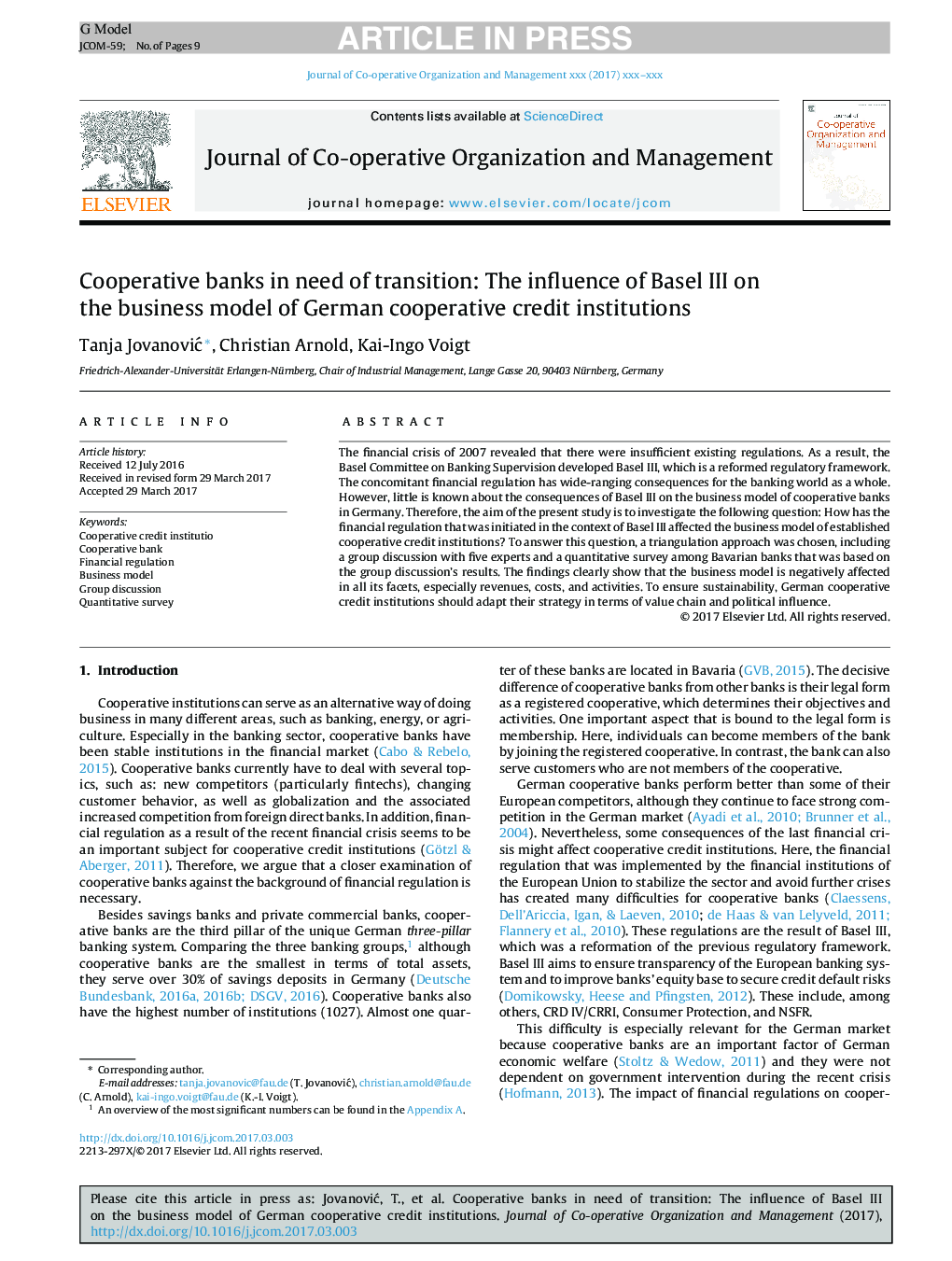| Article ID | Journal | Published Year | Pages | File Type |
|---|---|---|---|---|
| 5110038 | Journal of Co-operative Organization and Management | 2017 | 9 Pages |
Abstract
The financial crisis of 2007 revealed that there were insufficient existing regulations. As a result, the Basel Committee on Banking Supervision developed Basel III, which is a reformed regulatory framework. The concomitant financial regulation has wide-ranging consequences for the banking world as a whole. However, little is known about the consequences of Basel III on the business model of cooperative banks in Germany. Therefore, the aim of the present study is to investigate the following question: How has the financial regulation that was initiated in the context of Basel III affected the business model of established cooperative credit institutions? To answer this question, a triangulation approach was chosen, including a group discussion with five experts and a quantitative survey among Bavarian banks that was based on the group discussion's results. The findings clearly show that the business model is negatively affected in all its facets, especially revenues, costs, and activities. To ensure sustainability, German cooperative credit institutions should adapt their strategy in terms of value chain and political influence.
Related Topics
Social Sciences and Humanities
Business, Management and Accounting
Business and International Management
Authors
Tanja JovanoviÄ, Christian Arnold, Kai-Ingo Voigt,
